As a pet owner, it is important to keep track of your furry friend’s bathroom habits. It can be concerning if your French Bulldog is pooping too often or not enough.
In this blog post, we will discuss the ideal frequency for a healthy French Bulldog’s bowel movements and what factors can affect it.
A healthy French Bulldog, both puppies and adults, should typically poop between 1 to 5 times a day, with puppies possibly going more frequently due to their faster metabolism.
- How Often Should a Healthy French Bulldog Poop
- How Long After a Frenchie Eats Do They Poop?
- Factors Affecting Your Frenchie Poop
- Diet Quality and Type (Wet vs. Dry)
- Hydration Levels
- Exercise and Activity Level
- Age and Developmental Stage
- Overall Health and Digestive System Conditions
- Medications and Supplements
- Stress and Environmental Changes
- Parasitic Infections
- Frequency of Feeding
- Recent Vaccinations
- Exposure to Toxins or Foreign Objects
- How To Know If My Frenchie’s Poop Looks Normal?
- French Bulldog Poop Color
- French Bulldog Poop Texture
- When To Be Worried About Frenchie Stool
- Why Does My French Bulldog Puppy Have Loose Stools?
- What Do You Feed a French Bulldog With Loose Stools?
- When To Seek Veterinary Assistance For French Bulldog Pooping Frequency
- FAQs
- Conclusion and final thoughts
How Often Should a Healthy French Bulldog Poop
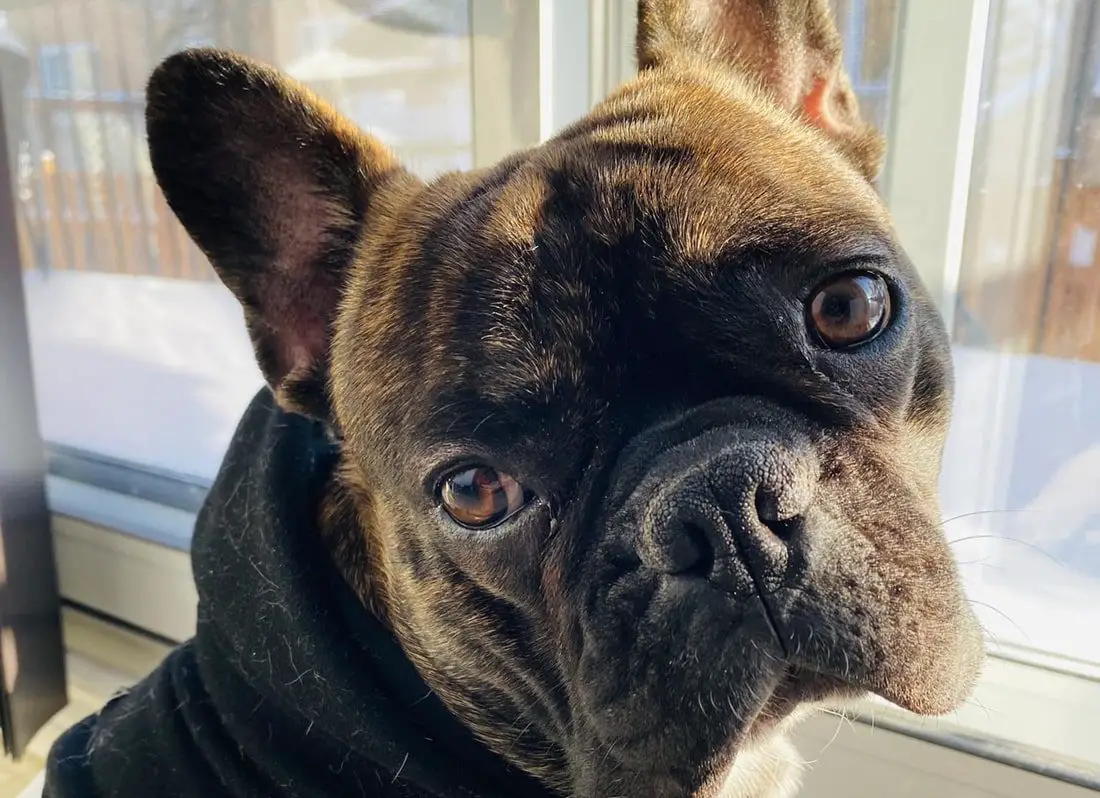
A healthy French Bulldog should typically poop between 1 to 5 times a day, with 2 times a day being the average.
The frequency of bowel movements in French Bulldogs can vary depending on factors such as diet, age, and overall health.
Adults generally poop less frequently than puppies due to their slower metabolism. A healthy adult French Bulldog usually defecates at least once per day.
However, it’s not uncommon for some dogs to go twice or even three times a day, especially if they have been very active or are on a high-fiber diet.
I recall treating a particular French Bulldog that was pooping less than once a day. The owner was understandably concerned, so we performed a full check-up and ran some tests.
It turned out the dog was just naturally on the lower end of the scale and was otherwise perfectly healthy.
We monitored his diet and ensured he got plenty of exercise, and he continued to thrive despite his less frequent bowel movements.
On the other hand, if a French Bulldog is pooping more than 5 times a day regularly, it could be a sign of a digestive problem, such as an upset stomach or food intolerance.
In such cases, it’s important to consult with a veterinarian to identify and address the underlying issue.
How Long After a Frenchie Eats Do They Poop?

A French Bulldog typically poops anywhere from 30 minutes to 2 hours after eating, as this is the usual time it takes for their digestive system to process the food.
When a Frenchie eats, the food travels down the esophagus and into the stomach where it’s broken down by digestive enzymes.
It then moves into the small intestine, where nutrients are absorbed. The remaining waste material then moves into the large intestine, or colon, and is excreted as feces.
This whole process typically takes between 30 minutes to 2 hours, which is when you can expect your Frenchie to need to poop.
In my years of veterinary practice, I’ve noticed that there can be some variation in this timing.
Some Frenchies may need to go almost immediately after eating, especially if they’ve had a big meal or they’ve been very active. Others may take a bit longer, especially if they’re older or less active.
However, if your Frenchie hasn’t pooped within about 6 hours of eating, it could be a sign that something isn’t quite right.
It might be that they’re constipated, or it could be a sign of a more serious issue such as a blockage in the digestive tract. In such cases, it’s important to consult with a veterinarian says Purina.
Factors Affecting Your Frenchie Poop
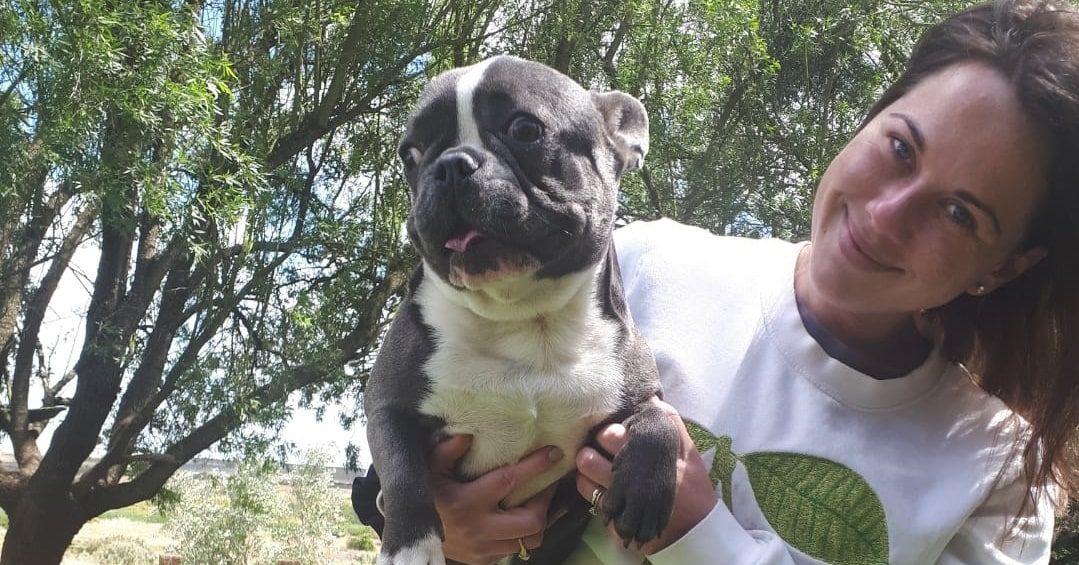
Several factors can influence your French Bulldog’s poop, including diet, hydration levels, exercise, age, health conditions, medications, stress, parasitic infections, feeding frequency, recent vaccinations, and exposure to toxins.
Diet Quality and Type (Wet vs. Dry)
The quality and type of food that your Frenchie eats can greatly affect their bowel movements. High-quality food with the right balance of nutrients can lead to regular, healthy stools.
On the other hand, low-quality food or a diet that is too high in certain nutrients like fat can cause diarrhea or constipation. Wet food tends to produce softer stools, while dry kibble usually results in firmer poops.
Hydration Levels
Hydration is instrumental in the digestive process. If your Frenchie doesn’t drink enough water, they can experience hard, dry stools and constipation as the body extracts water from the waste to compensate for dehydration.
Too much water, on the other hand, could result in loose stools or diarrhea as excess water can speed up the digestion process and prevent the formation of solid stools says AKC.
Exercise and Activity Level
Exercise and activity level significantly influence your Frenchie’s digestion. Regular physical activity stimulates the digestive system, encouraging more frequent bowel movements.
In contrast, a sedentary lifestyle can slow down digestion, leading to less frequent bowel movements and potential constipation.
Age and Developmental Stage
A Frenchie‘s age and developmental stage play a significant role in their bowel movements.
Puppies have a faster metabolism and need to consume more food relative to their size, leading to more frequent bowel movements.
As dogs age, their metabolism slows, reducing the frequency of their bowel movements as per Vets4Pets.
Overall Health and Digestive System Conditions
Various health conditions, especially those affecting the digestive system, can significantly affect your Frenchie’s poop.
Diseases such as pancreatitis, colitis, or gastrointestinal infections can cause changes in the frequency, consistency, and color of the stools.
For instance, an inflamed colon might cause loose or bloody stools, while digestive system infections could lead to unusually smelly or discolored poop says PetMD.
Medications and Supplements
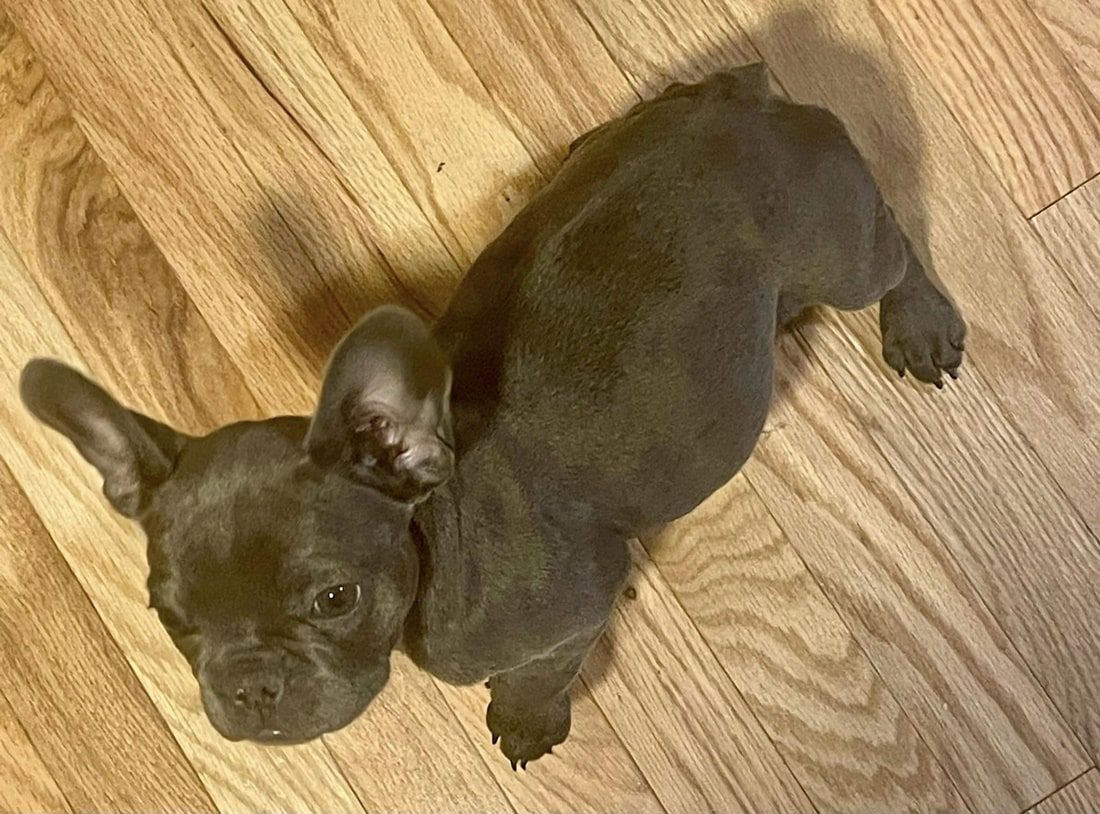
Medications and supplements can also alter your Frenchie’s bowel movements. Antibiotics, for instance, can sometimes disrupt the gut flora, leading to loose stools or diarrhea.
Iron supplements might cause darker stools due to the body’s inability to absorb excess iron.
Stress and Environmental Changes
Stress and environmental changes can impact a Frenchie’s digestion.
Any significant change in their routine, environment, or even family dynamics can potentially cause temporary digestive upsets, resulting in changes in their poop.
Parasitic Infections
Parasitic infections, such as those caused by worms, can disrupt your Frenchie’s digestion.
Infected dogs often experience diarrhea, unusually smelly poop, or visible worms in their stool. Regular deworming is crucial to keep these infections at bay.
Frequency of Feeding
The frequency of feeding your Frenchie impacts their bowel movements.
Dogs fed more frequently tend to have more regular bowel movements as consistent feeding schedules help regulate the digestive process says HillsPet.
Recent Vaccinations
Vaccinations can sometimes cause temporary digestive upset in dogs, leading to changes in their poop.
These changes are typically short-lived and resolve as the dog’s body adjusts to the vaccine.
Exposure to Toxins or Foreign Objects
Exposure to toxins or ingestion of foreign objects can cause serious digestive issues in your Frenchie.
This could result in sudden changes in their poop, such as discoloration or the presence of blood. Prompt veterinary care is crucial if you suspect your Frenchie has ingested something harmful says VetsNow.
How To Know If My Frenchie’s Poop Looks Normal?
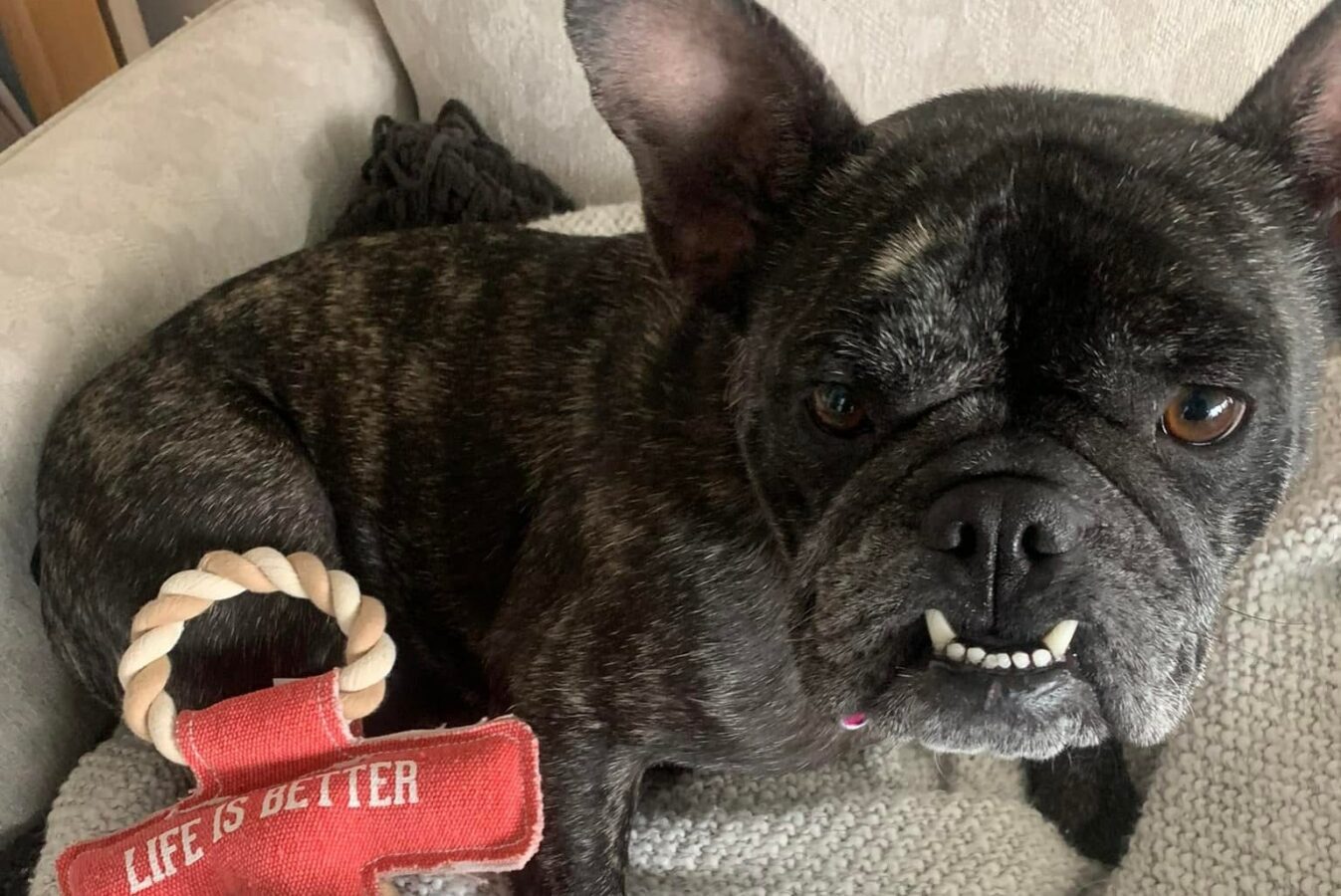
A Frenchie’s poop looks normal when it is firm, chocolate-brown in color, and doesn’t contain any visible foreign materials such as blood, mucus, or undigested food.
The ideal stool of a French Bulldog should be firm, but not hard, and should hold its shape when picked up.
It should be chocolate-brown in color, which indicates that the dog is properly digesting its food and absorbing the nutrients.
The stool should also be free of any visible foreign materials. Blood, mucus, or undigested food in the stool can be signs of potential health issues.
French Bulldog Poop Color
| Color | Possible Cause |
|---|---|
| Brown | Normal, healthy poop color. Indicates the dog is properly digesting its food. |
| Black or Tarry | Could indicate bleeding in the upper gastrointestinal tract. This needs immediate veterinary attention. |
| Red Streaks | Blood in the stool. This could be a sign of bleeding in the lower digestive tract and requires immediate veterinary attention. |
| Green | Could indicate that the dog is eating a lot of grass, or it could be a sign of a gallbladder issue. |
| Yellow | May indicate problems with the liver, pancreas, or gallbladder. |
| White or Gray | Can indicate problems with the liver or pancreas, or could be due to a high bone content in the diet. |
| Orange | Could indicate a liver or bile duct issue. |
French Bulldog Poop Texture
| Texture | Possible Cause |
|---|---|
| Firm and Holds Shape | Normal, healthy poop texture. Indicates the dog’s diet and digestion are in good order. |
| Soft or Mucous-Covered | Can be a sign of dietary changes or intolerance, stress, or potentially parasites. Persistent soft stools need veterinary attention. |
| Watery/Diarrhea | Could indicate gastrointestinal upset, infection, parasites, or even serious diseases like parvovirus. Immediate veterinary attention is required. |
| Hard and Dry | Often a sign of dehydration or lack of dietary fiber. Can also indicate that the dog is not defecating frequently enough. |
| Greasy or Shiny | Could suggest too much fat in the diet or a problem with fat absorption, often linked to pancreas issues. |
| Ribbon-Like | Could indicate inflammation or an obstruction in the intestines. This needs immediate veterinary attention. |
When To Be Worried About Frenchie Stool
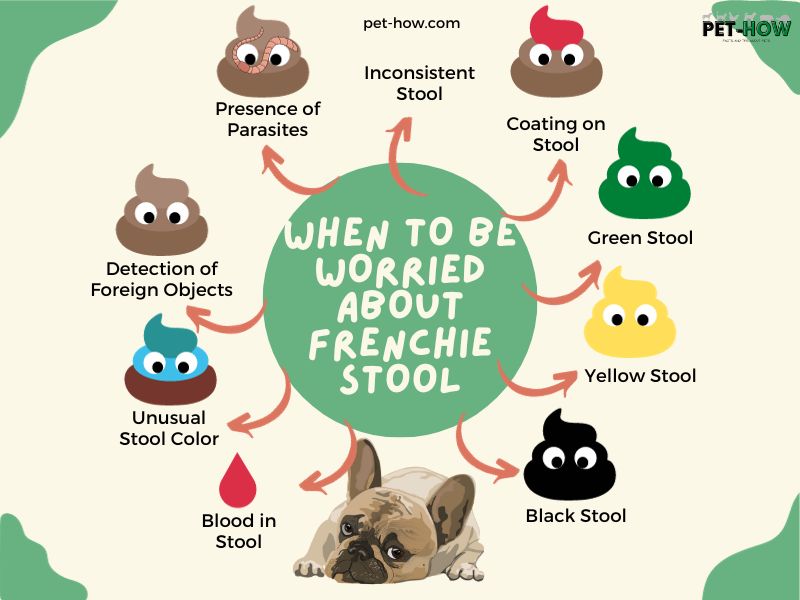
You should be concerned about your Frenchie’s poop if you notice parasites, foreign objects, unusual colors, abnormal consistency, or a coating on the stool.
Presence of Parasites
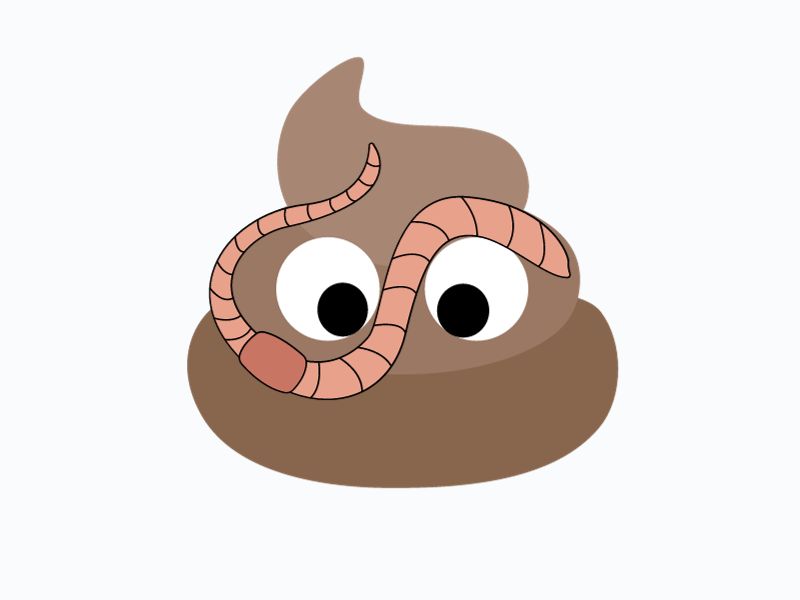
Seeing worms in your Frenchie’s poop is a clear sign of parasitic infestation. This can cause a range of health issues, from diarrhea and vomiting to weight loss and anemia. A vet should be consulted immediately for a proper diagnosis and treatment plan.
Detection of Foreign Objects
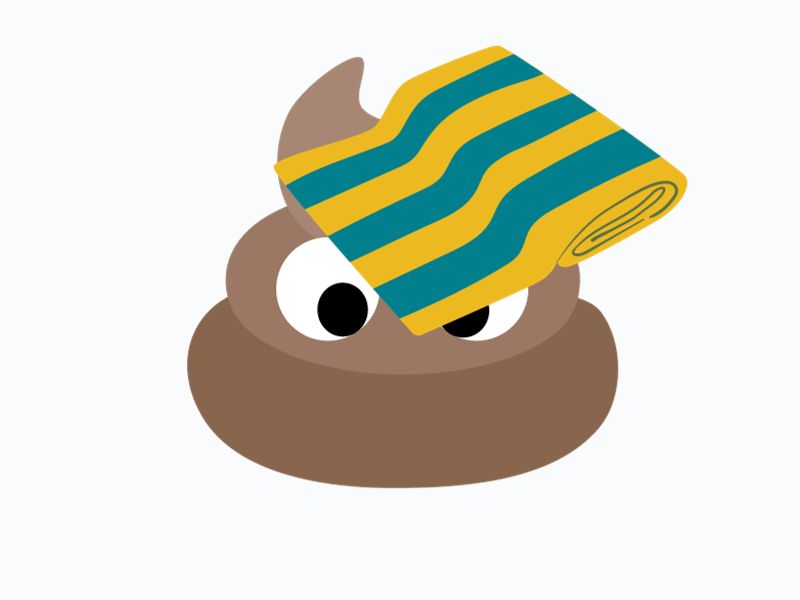
Finding foreign items in your Frenchie’s stool suggests they may have ingested something inappropriate. Depending on what the object is, it could pose a serious risk, potentially causing blockages or damage to the digestive tract.
Unusual Stool Color
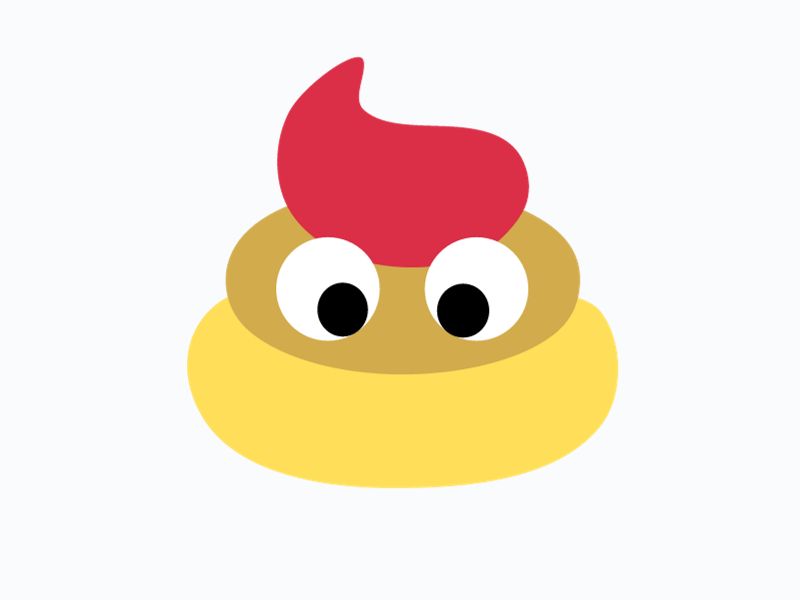
Changes in the color of your Frenchie’s stool can be indicative of health issues. Normal dog feces are usually brown. Any persistent deviation from this should warrant a visit to the vet.
Black Stool
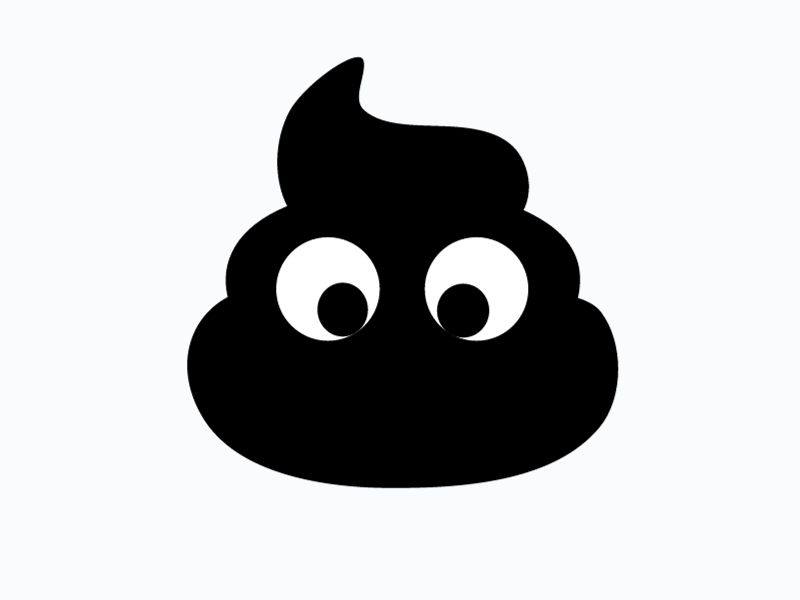
Black or tarry stool can be particularly concerning as it often indicates bleeding in the upper gastrointestinal tract. This needs immediate veterinary attention.
Yellow Stool
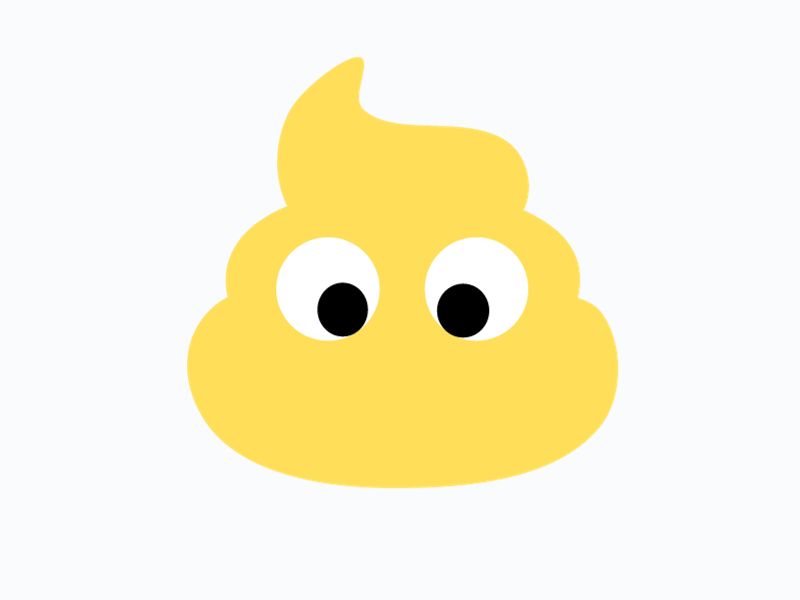
Yellow feces may indicate problems with the liver, pancreas, or gallbladder. If your Frenchie’s stool is consistently yellow, it’s crucial to seek veterinary advice.
Green Stool
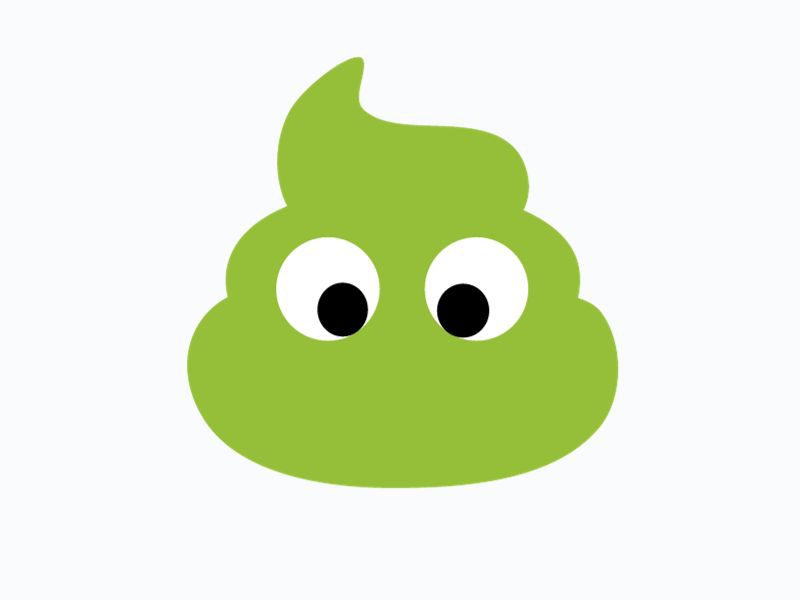
Green poop could mean your Frenchie has been eating grass, but it could also signify a gallbladder issue. It’s essential to monitor this and consult with a vet if it persists.
Blood in Stool
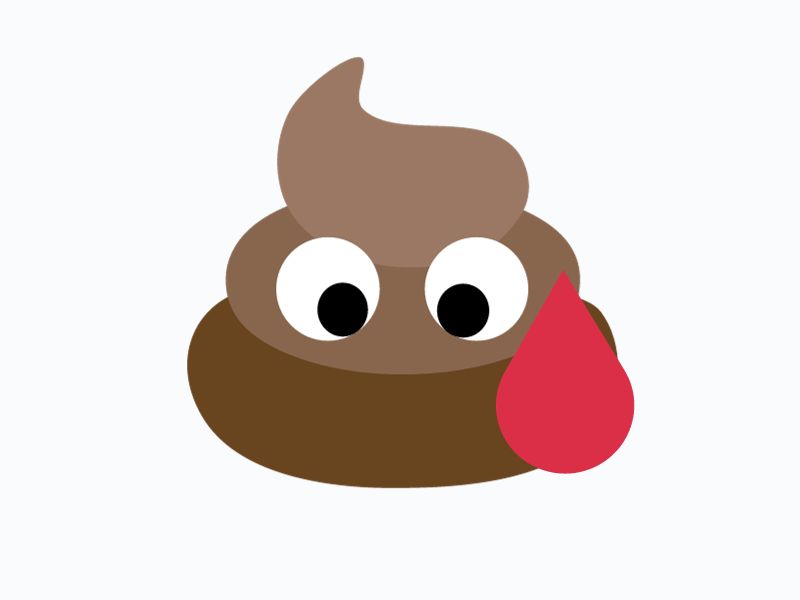
Red streaks in the poop typically indicate bleeding in the lower digestive tract. This is a serious symptom that requires immediate veterinary attention.
Coating on Stool
A coating on your Frenchie’s stool, such as mucus, may indicate inflammation in the colon. This could be due to a variety of causes, including stress, dietary changes, or certain diseases.
Inconsistent Stool
The consistency of your Frenchie’s poop can provide important clues about their health. Normal dog poop should be firm but not hard. Soft, watery, or extremely hard stools could indicate dietary problems, dehydration, or other health issues.
I recall one case from my veterinary practice where a Frenchie consistently had soft, mucus-covered stools.
Upon further investigation, we discovered the poor pup was suffering from a dietary intolerance. A simple adjustment to his diet resolved the issue, reinforcing the importance of monitoring your pet’s stool.
Why Does My French Bulldog Puppy Have Loose Stools?

Your French Bulldog puppy might have loose stools due to various reasons including food allergies, dietary indiscretions, stress from environmental changes, or intestinal parasites.
Food Allergies
Food allergies are a common cause of diarrhea in French Bulldogs. If your puppy has recently started a new diet or eaten something unusual, this could be the source of the problem.
A hypoallergenic diet, under the supervision of a vet, can help pinpoint and eliminate the allergen.
Dietary Indiscretions
French Bulldogs, like most puppies, are curious and can eat things they shouldn’t.
This “dietary indiscretion” can upset their stomachs and lead to loose stools. Monitoring what your puppy consumes can prevent these incidents.
Environmental Stress
Changes in the environment such as joining a new home, traveling, or other alterations in routine can cause stress in puppies, leading to loose stools. Ensuring a calm, stable environment can help alleviate this issue.
Intestinal Parasites
Parasites are another common cause of diarrhea in puppies. Regular deworming, as advised by your vet, is key to preventing parasitic infestations.
From my experience as a vet, I’ve seen many cases of French Bulldog puppies with loose stools.
Often, it’s a simple matter of dietary indiscretion or stress. For instance, one Frenchie pup had persistent diarrhea after moving to a new home.
After ruling out medical causes, we realized it was stress-related. By implementing a few calming strategies and maintaining a consistent routine, the pup’s condition improved significantly.
What Do You Feed a French Bulldog With Loose Stools?
Feeding a French Bulldog with loose stools requires giving them a bland diet, which can include foods like boiled chicken, white rice, or specific supplements that help to soothe their digestive system.
Bland Diet
A bland diet is often recommended for French Bulldogs with loose stools. This can include foods like boiled chicken and white rice. The bland nature of these foods can help to soothe your dog’s digestive system and firm up their stools.
Ground Beef
Another protein source that can be beneficial is ground beef. However, it’s important to boil the beef to remove all fat before offering it to your Frenchie. Excess fat can further irritate the digestive system and exacerbate diarrhea.
Rice Water
Rice water, the water in which rice has been boiled, is also beneficial for dogs with loose stools. It’s easy to digest and can help to add bulk to your dog’s stools.
Dietary Supplements
Certain dietary supplements can also help to ease digestive issues in French Bulldogs. For instance, a mixture of L-glutamine, FOS (fructo-oligosaccharide), and Slippery Elm can be sprinkled on your dog’s food to help soothe their digestive system.
Portion Control
If your Frenchie is not lean, overfeeding could be causing soft stools. Monitor how much you are feeding your dog, as too much food can lead to digestive issues.
When To Seek Veterinary Assistance For French Bulldog Pooping Frequency
You should seek veterinary assistance for your French Bulldog’s pooping frequency if you notice a significant change in their regular bowel movements, such as an increase or decrease in frequency, or any signs of distress during defecation.
Changes in Frequency
French Bulldogs, like other dogs, have varying poop frequencies based on age, diet, and activity level.
If there’s a sudden change in your Frenchie’s typical pooping habits, it could be a sign of a health issue. For example, if your dog is pooping more or less frequently than usual, it may be time to contact a vet.
Signs of Discomfort
If your Frenchie shows signs of discomfort when trying to defecate, such as straining, crying, or whimpering, it’s crucial to seek veterinary assistance.
These signs could indicate constipation, diarrhea, or a more serious health concern like gastrointestinal obstruction.
Presence of Blood or Mucus
The presence of blood or mucus in your French Bulldog’s stool is another reason to consult a vet. This could be a sign of inflammation, infection, or injury in the digestive tract.
Changes in Consistency or Color
Changes in the consistency or color of your Frenchie’s poop can also indicate health problems.
For instance, black, tarry stools suggest bleeding in the upper gastrointestinal tract, whereas pale, yellow, or green stools could indicate issues with the liver or gallbladder.
Drawing from my experience as a vet, I remember a case where a French Bulldog was brought in due to a sudden increase in poop frequency. After conducting a few tests, we discovered the poor pup had an intestinal parasite. With proper medication, his condition improved within a week.
FAQs
Q: How do I potty train a French bulldog?
A: To potty train a French bulldog, establish a consistent schedule for taking them outside to go to the bathroom. Use positive reinforcement and rewards when they successfully poop outside.
Q: Can a French bulldog eat poop?
A: Some French bulldogs may try to eat their own poop or the poop of other animals. This behavior should be discouraged as it can lead to health problems.
Q: What should I do if my French bulldog’s poop looks abnormal?
A: If your French bulldog’s poop looks abnormal in color, consistency, or contains blood, it is best to consult a veterinarian for further evaluation.
Q: Do French bulldog puppies poop a lot?
A: Yes, French bulldog puppies may poop more frequently, up to 5 times a day, as their digestive system is still developing.
Conclusion and final thoughts
In conclusion, the frequency of a healthy French Bulldog’s bowel movements can vary depending on several factors such as age, diet, and activity level.
By providing proper nutrition and regular exercise, you can help maintain your Frenchie’s digestive health.
Remember to always prioritize your pet’s well-being by keeping an eye on their bathroom routine and addressing any issues that may arise promptly.





Leave a Reply